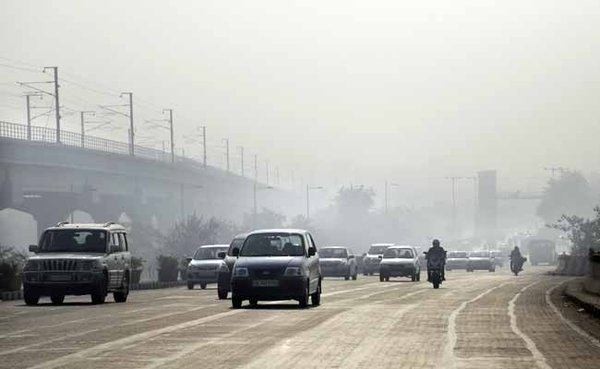
New Delhi: The National Green Tribunal today gave a green signal to the implementation of the odd-even car-rationing scheme whenever PM10 and PM2.5 levels breach the danger mark, in a bid to control the extreme air pollution crisis Delhi has been facing in the last week.
PM10 and PM2.5 are particulate matter in the air that can lodge deep in the lungs and cause severe respiratory ailments.
It said that the scheme must be launched as and when PM 10 crosses 300 level and PM 2.5 crosses 500.
The NGT began hearing the matter at 11 am.
No exemption will be granted to women, two-wheelers or VVIPs, it announced. Emergency vehicles alone would be exempted from following the scheme.
The NGT also rapped the Delhi government for failing to think of measures like this before the situation got worse. It also asked if the scheme is being implemented with the consent of both the Delhi government and the Delhi Lieutenant Governor.
The AAP government had yesterday announced the bringing back of the odd-even scheme as part of a Graded Response Plan to tackle the severe air pollution and smog which has been hanging low over the national capital and adjoining cities and states.
Yesterday, pulling up the Delhi Government over introduction of the odd-even car scheme for five days from next week, the National Green Tribunal on Friday directed the government to prove the efficacy of the other measures too taken by it to control the increasing pollution in the capital first before going ahead with the scheme.
A bench headed by NGT chairperson judge Swatanter Kumar questioned the rationale of the government in introducing the scheme when reports by Central Pollution Control Board (CPCB) and Delhi Pollution Control Committee (DPCC) had found that the levels of PM10 and PM2.5 were cumulatively higher when the scheme was implemented twice earlier.
On April 21, last year, the Central Pollution Control Board (CPCB) had told NGT that there was no data to suggest that the odd-even scheme has led to a decline in vehicular pollution in Delhi-NCR.
The pollution monitoring body had said that there was no data to indicate that car rationing scheme has any impact on decrease in vehicular pollution and the fluctuations in PM10 and PM2.5 is due to weather and change in wind patterns.
The national capital is experiencing ‘severe’ air quality under a blanket of thick haze, as pollution levels have breached permissible standards by multiple times.
The Central Pollution Control Board (CPCB) has recorded ‘severe’ air quality, meaning that the intensity of pollution was extreme.


.jpeg)

